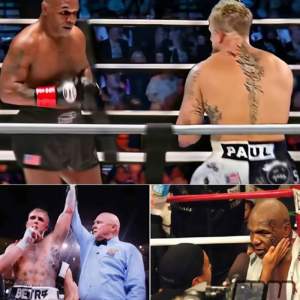Walmart Personal Shopper’s Reputation Tarnished by Viral Video: The Full Story

In the age of social media, a single video can drastically alter a person’s life overnight. Such is the case with Bill Ael, a 49-year-old Walmart personal shopper from Belleville, Illinois. Ael’s reputation was shattered when a video of him at a self-checkout station in Walmart went viral, leading many to believe he was shoplifting. The footage, taken by an onlooker, showed Ael bagging items without scanning them, and the woman recording the video accused him of theft. However, Ael maintains that he was merely performing his duties as a personal shopper, using Walmart’s app to streamline the checkout process.
The Incident and the Viral Video
The video, captured and narrated by a female shopper, portrays Ael placing items into his bags at the self-checkout without visibly scanning them. Her commentary accuses him of stealing: “This man is literally just stealing everything. He ain’t scanning.” The video quickly spread across social media platforms, amassing over 16 million views on Twitter alone within 24 hours. The impact was immediate and widespread, with viewers worldwide labeling Ael as a thief.
The Personal Shopper’s Defense
In an interview with Inside Edition, Ael vehemently denied the accusations. “I am not a thief,” he declared. “I was simply doing my job.” As a Walmart personal shopper, Ael explained that he uses the Walmart app to scan items as he picks them off the shelves. This method allows him to scan a single QR code at the self-checkout, which records the entire purchase. However, this process was not evident in the video, leading to widespread misunderstanding.
The Fallout
The viral video has had severe consequences for Ael. Known for his impeccable behavior, he now finds himself viewed with suspicion in his small town where everyone knows him. “More than 16 million people think this guy’s a shoplifter, including his small town where everyone knows him,” the Inside Edition report highlighted. Ael’s life has been turned upside down; he is regularly confronted by both customers and Walmart employees who recognize him from the video.
Ael’s distress was palpable as he recounted his fears: “Did you think, oh my gosh, this is going to cost me my job, my friends, everything?” he was asked during the interview. “Oh, absolutely. I’m being stopped by customers, asking about the videos. I’m being stopped by employees at Walmart,” he responded.
Setting the Record Straight
Ael came forward to set the record straight and restore his tarnished reputation. He explained that his job involves using the Walmart app to scan items as he shops for customers. At the self-checkout, instead of scanning each item individually, he scans a single QR code on his phone that contains the entire list of items, expediting the checkout process. This method, though efficient, was misunderstood by the woman who filmed him.
Message to the Public
Ael had a poignant message for the woman who posted the video and for the public: “Think twice before you just start recording people. You could be damaging someone’s life and not even understanding what you’re doing.” This incident highlights the potential harm of jumping to conclusions and sharing content without context.
The Broader Implications
Ael’s experience underscores the power and danger of social media. In today’s digital age, a single video can go viral within minutes, and the court of public opinion often passes judgment quickly and harshly. The consequences of such viral content can be devastating, as seen in Ael’s case.
This incident also raises important questions about privacy and the ethics of recording and sharing videos of strangers. While the intention might be to expose wrongdoing, the lack of context can lead to misinterpretation and unjust consequences. Ael’s story is a cautionary tale about the potential damage of viral videos and the importance of verifying facts before drawing conclusions.
Conclusion
Bill Ael’s ordeal is a stark reminder of the fragility of reputation in the digital age. What started as a routine day at work quickly escalated into a global misunderstanding, thanks to a viral video taken out of context. Ael’s case calls for greater awareness and responsibility among social media users. It emphasizes the need for caution and empathy before recording and sharing content that could potentially ruin lives.
As Ael awaits the gradual restoration of his reputation, his story serves as a powerful lesson on the impacts of viral misinformation and the importance of context in our rapidly evolving digital world. His plea for understanding and caution in the digital age is one that resonates deeply, urging all to think before they act and share
News
‘ VIDEO ‘ Leaked Information Benavidez Surrendered After Receiving 2 Punches In The Nose From Canleo Alvarez ️ ️🥊✊ FULL VIDEO 👇👇
In an unexpected twist that has sent shockwaves through the boxing community, leaked information reveals that David Benavidez allegedly surrendered after receiving two powerful punches to the nose from Canelo Álvarez. The news, which emerged from a confidential source, has…
Mike Tyson Was ‘Knocked Out’ By Jake Paul After Just 2 Punches! Information Leaked.. 😱 🥊 FULL VIDEO 👇
In a stunning revelation that has taken the boxing world by surprise, leaked information suggests that the legendary Mike Tyson was “knocked out” by YouTube star-turned-boxer Jake Paul after just two punches. The news, originating from an undisclosed source, has…
Video Of Tyson Fury Successful When Only 4 Punches Killed Usyk In The Rematch Earlier Than Expected FULL VIDEO 👇👇
In an unprecedented turn of events, a video has surfaced showing Tyson Fury achieving a stunning victory over Oleksandr Usyk in their highly anticipated rematch. The footage, which has quickly gone viral, reveals that Fury managed to defeat Usyk with…
“HE’S 🐁” – Naoya Inoue Angrily Criticized Tank Davis For Being Cowardly For Not Accepting Defeat Due To His Own Ability
In a heated exchange that has sent shockwaves through the boxing community, Naoya Inoue has publicly criticized Gervonta “Tank” Davis, accusing him of cowardice for not accepting defeat due to his own abilities. Inoue’s harsh words came during a recent…
Terence Crawford Has No Doubt Who Shakur Stevenson’s Toughest Opponent Will Be
Terence Crawford has seen the skillset of Shakur Stevenson up close and personal. The two world champions are friends and occasional sparring partners despite the difference in weight, often sharpening their tools ahead of high-level title bouts. Stevenson is currently…
Gervonta Davis Talked Continuously During Heated Press Conference Faceoff Frank Martin, Proving Mike Tyson Mocking Tank Davis is ‘talkative woman’
The tension was palpable at the recent press conference faceoff between Gervonta “Tank” Davis and Frank Martin, but what stood out most was Davis’s continuous talking throughout the event. This relentless chatter seemed to reinforce Mike Tyson’s previous mockery of…
End of content
No more pages to load











